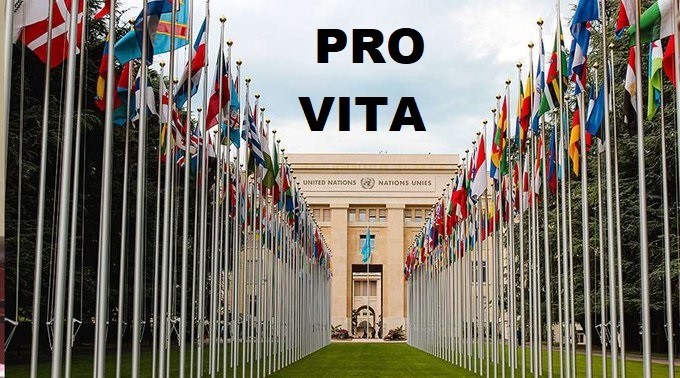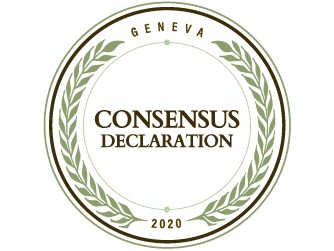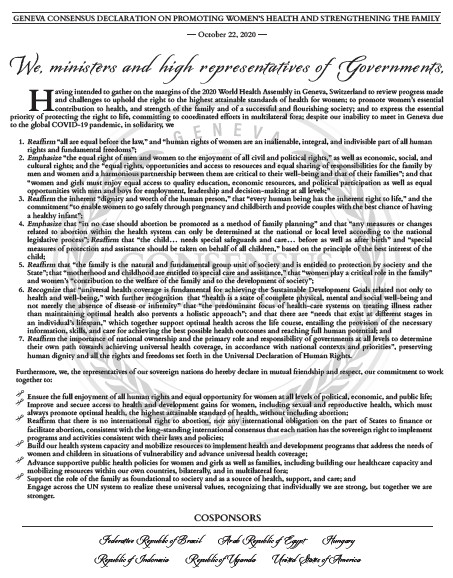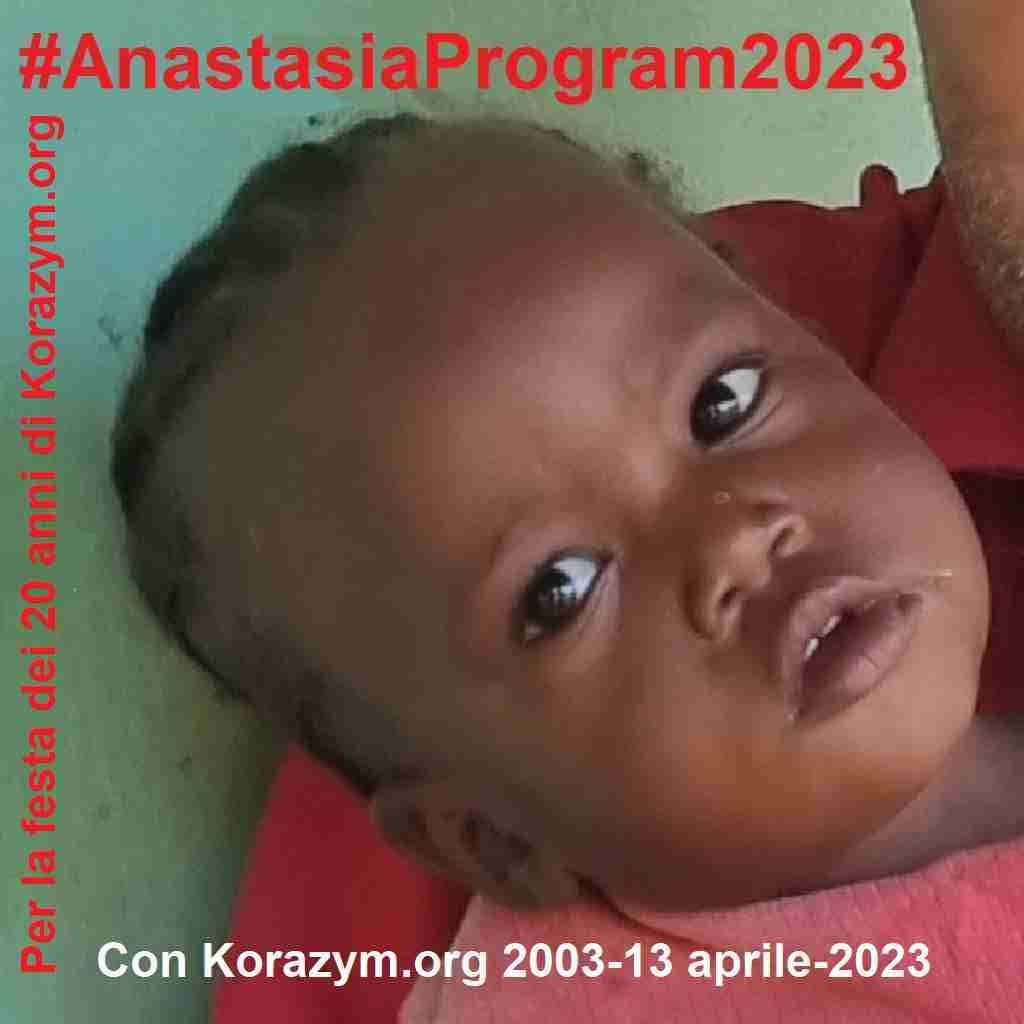USA insieme a 31 Nazioni hanno firmato una storica dichiarazione che rifiuta il presunto “diritto umano” internazionale all’aborto. Italia N.P.

Ieri, il 22 ottobre 2020 gli Stati Uniti hanno ospitato la cerimonia della firma della “Dichiarazione di consenso di Ginevra sulla promozione della salute delle donne e il rafforzamento della famiglia”. Il Segretario di Stato Michael R. Pompeo e il Segretario alla salute e ai servizi umani (HHS) Alex Azar hanno partecipato alla firma virtuale di questo documento storico, che rafforza ulteriormente una coalizione in corso per ottenere una migliore salute per le donne, la conservazione della vita umana, il sostegno alla famiglia come fondamento di una società sana e la protezione della sovranità nazionale nella politica globale. Il documento è stato co-sponsorizzato da Stati Uniti, Brasile, Egitto, Ungheria, Indonesia e Uganda, e co-firmato da 32 paesi in totale, che rappresentano oltre 1,6 miliardi di persone e ogni regione del mondo. La Dichiarazione resta aperta per ulteriori firme. Italia non pervenuto.

Valerie Huber, Rappresentante speciale per la salute globale delle donne presso il Dipartimento della salute e dei servizi umani (HHS) degli Stati Uniti, ha fornito il contesto della Dichiarazione di consenso di Ginevra. La Dichiarazione, ha spiegato Huber, doveva essere firmata al culmine del vertice globale sulla salute delle donne dell’Assemblea mondiale della sanità, che è stato annullato a causa della pandemia COVID-19. “Abbiamo deciso di andare avanti con la dichiarazione ora, perché accelerare i guadagni di salute per le donne non può aspettare”, ha detto Huber. “Sostenere il valore intrinseco della famiglia non può aspettare. Proteggere la vita nata e non nata e la sovranità delle nazioni per fare le proprie leggi su questo tema non può aspettare”.
“Oggi abbiamo posto un chiaro segnale; le agenzie delle Nazioni Unite non possono più reinterpretare e interpretare erroneamente il linguaggio concordato senza responsabilità, ha affermato il Segretario alla salute e ai servizi umani Alex Azar durante la cerimonia di ieri, 21 ottobre 2020. “Senza scuse affermiamo che i governi hanno il diritto sovrano di fare le proprie leggi per proteggere la vita innocente e scrivere le loro regole sull’aborto”, ha detto Azar. “Nel firmare la dichiarazione oggi, gli Stati Uniti sono onorati di stare al fianco di Brasile, Egitto, Ungheria, Indonesia e Uganda, i sostenitori interregionali per la dichiarazione”, ha detto. In totale 32 Paesi hanno firmato la dichiarazione. Azar ha definito la firma il “punto più alto” del suo tempo alla guida del dipartimento e ha osservato che i Paesi che non hanno ancora firmato il documento possono ancora farlo. “La Dichiarazione di Consenso di Ginevra è un documento storico, che afferma chiaramente la nostra posizione in quanto nazioni sulla salute delle donne, sulla famiglia, sul rispetto della vita e sulla difesa della sovranità nazionale”, ha affermato Azar, definendolo “molto più di una dichiarazione di convinzioni”. “È uno strumento fondamentale e utile per difendere questi principi in tutti gli organismi delle Nazioni Unite e in ogni contesto multilaterale, utilizzando un linguaggio precedentemente concordato dagli Stati membri di tali organismi”, ha spiegato. La dichiarazione è stata scritta in parte in risposta a una “tendenza inquietante” nelle Nazioni Unite, ha detto Azar. “Con crescente frequenza, alcune nazioni ricche e le agenzie delle Nazioni Unite a loro legate affermano erroneamente [che] l’aborto è un diritto umano universale”. Azar ha affermato che queste politiche hanno l’effetto di costringere i Paesi ad attuare leggi “progressiste” sull’aborto o di affrontare la perdita di fondi o di posizione internazionale. Ha accusato alcune nazioni di avere un “focus miope su un programma radicale che è offensivo per molte culture e fa deragliare l’accordo sulle priorità di salute delle donne”. La coalizione dei Paesi firmatari “riterrà responsabili le organizzazioni multilaterali”, ha spiegato, denunciando queste organizzazioni per “promuovere posizioni che non potranno mai ottenere consenso”. “Dichiareremo inequivocabilmente che non esiste alcun diritto internazionale all’aborto. Metteremo con orgoglio la salute delle donne al primo posto in ogni fase della vita “, ha detto.
Anche il Segretario di Stato Mike Pompeo ha parlato alla cerimonia della firma, definendo la dichiarazione un “impegno profondo e personale per proteggere la dignità umana” e “il culmine di tanto duro lavoro”. Pompeo ha sottolineato la “difesa senza precedenti dei nascituri all’estero” dell’amministrazione Trump e ha affermato che “gli Stati Uniti hanno difeso la dignità della vita umana ovunque e sempre” negli ultimi quattro anni. “È storico essere qui”, ha detto. “È la prima volta che si costruisce una coalizione multilaterale intorno alla questione della difesa della vita”. La Dichiarazione di Consenso di Ginevra, ha affermato Pompeo, è un “impegno a lavorare insieme all’ONU e in altri contesti internazionali per ottenere risultati tangibili” ed è “fiducioso” che qualcosa accadrà. Ha aggiunto di essere “veramente orgoglioso” del lavoro svolto.
Co-firmatari
della Dichiarazione di Consenso di Ginevra
Kingdom of Bahrain
Republic of Belarus
Republic of Benin
Federative Republic of Brazil (cosponsor)
Burkina Faso
Republic of Cameroon
Democratic Republic of the Congo
Republic of the Congo
Republic of Djibouti
Arab Republic of Egypt (cosponsor)
Kingdom of Eswatini
Republic of The Gambia
Republic of Haiti
Hungary (cosponsor)
Republic of Indonesia (cosponsor)
Republic of Iraq
Republic of Kenya
State of Kuwait
State of Libya
Republic of Nauru
Republic of Niger
Sultanate of Oman
Islamic Republic of Pakistan
Republic of Poland
Kingdom of Saudi Arabia
Republic of Senegal
Republic of South Sudan
Republic of Sudan
Republic of Uganda (cosponsor)
United Arab Emirates
United States of America (cosponsor)
Republic of Zambia

Geneva Consensus Declaration
On Promoting Women’s Health
and Strengthening the Family
22 October 2020
We, ministers and high representatives of Governments,
Having intended to gather on the margins of the 2020 World Health Assembly in Geneva, Switzerland to review progress made and challenges to uphold the right to the highest attainable standards of health for women; to promote women’s essential contribution to health, and strength of the family and of a successful and flourishing society; and to express the essential priority of protecting the right to life, committing to coordinated efforts in multilateral fora; despite our inability to meet in Geneva due to the global COVID-19 pandemic, in solidarity, we
1. Reaffirm “all are equal before the law,” and “human rights of women are an inalienable, integral, and indivisible part of all human rights and fundamental freedoms”;
2. Emphasize “the equal right of men and women to the enjoyment of all civil and political rights,” as well as economic, social, and cultural rights; and the “equal rights, opportunities and access to resources and equal sharing of responsibilities for the family by men and women and a harmonious partnership between them are critical to their well-being and that of their families”; and that “women and girls must enjoy equal access to quality education, economic resources, and political participation as well as equal opportunities with men and boys for employment, leadership and decision-making at all levels;”
3. Reaffirm the inherent “dignity and worth of the human person,” that “every human being has the inherent right to life,” and the commitment “to enable women to go safely through pregnancy and childbirth and provide couples with the best chance of having a healthy infant”;
4. Emphasize that “in no case should abortion be promoted as a method of family planning” and that “any measures or changes related to abortion within the health system can only be determined at the national or local level according to the national legislative process”; Reaffirm that “the child… needs special safeguards and care… before as well as after birth” and “special measures of protection and assistance should be taken on behalf of all children,” based on the principle of the best interest of the child;
5. Reaffirm that “the family is the natural and fundamental group unit of society and is entitled to protection by society and the State”; that “motherhood and childhood are entitled to special care and assistance,” that “women play a critical role in the family” and women’s “contribution to the welfare of the family and to the development of society”;
6. Recognize that “universal health coverage is fundamental for achieving the Sustainable Development Goals related not only to health and well-being,” with further recognition that “health is a state of complete physical, mental and social well-being and not merely the absence of disease or infirmity” that “the predominant focus of health-care systems on treating illness rather than maintaining optimal health also prevents a holistic approach”; and that there are “needs that exist at different stages in an individual’s lifespan” which together support optimal health across the life course, entailing the provision of the necessary information, skills, and care for achieving the best possible health outcomes and reaching full human potential; and
7. “Reaffirm the importance of national ownership and the primary role and responsibility of governments at all levels to determine their own path towards achieving universal health coverage, in accordance with national contexts and priorities,” preserving human dignity and all the rights and freedoms set forth in the Universal Declaration of Human Rights.
Furthermore, we, the representatives of our sovereign nations do hereby declare in mutual friendship and respect, our commitment to work together to:
– Ensure the full enjoyment of all human rights and equal opportunity for women at all levels of political, economic, and public life;
– Improve and secure access to health and development gains for women, including sexual and reproductive health, which must always promote optimal health, the highest attainable standard of health, without including abortion;
– Reaffirm that there is no international right to abortion, nor any international obligation on the part of States to finance or facilitate abortion, consistent with the long-standing international consensus that each nation has the sovereign right to implement programs and activities consistent with their laws and policies;
– Build our health system capacity and mobilize resources to implement health and development programs that address the needs of women and children in situations of vulnerability and advance universal health coverage;
– Advance supportive public health policies for women and girls as well as families, including building our healthcare capacity and mobilizing resources within our own countries, bilaterally, and in multilateral fora;
– Support the role of the family as foundational to society and as a source of health, support, and care; and
– Engage across the UN system to realize these universal values, recognizing that individually we are strong, but together we are stronger.




























